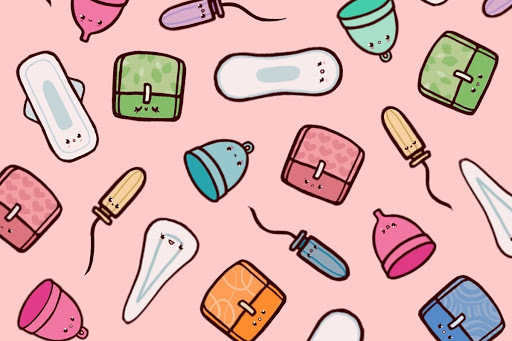FreetheFlow, a teen-led organization founded by Emily Chinn, a junior at San Mateo High, focuses on contributing to the end of period poverty, the inability to afford feminine hygiene products. The company’s goal is to gather those products and create donation packets to give to local women’s shelters, such as LifeMoves. Chinn started FreetheFlow because many people do not recognize period poverty as a prevalent issue in society, as only menstruators deal with them and the topic is not discussed very often. She believes that more people should be aware of this topic to reduce its stigmatism. “As the wealth gap between the wealthy elite and the low-income working class grows day by day, those that fall into the working-class struggle to make ends meet, with the thought of buying feminine hygiene products being a low priority,” states freetheflow.org.
Periods can degrade the homeless and stop them from getting jobs. Additionally, she wishes to emphasize sustainability and periods, as lots of plastic packaging in pads and tampons are found in the sewage and the ocean. She is setting aside some donations toward finding sustainable options for periods. FreetheFlow means freeing the cost of having a period, not freeing the period itself, which is a common misconception.
Chinn first created the organization in middle school and further researched periods when writing an argumentative essay in her sophomore year on why menstrual products shouldn’t be labeled/taxed as a luxury item because they aren’t a luxury. During her research, Chinn learned about homeless women dealing with periods and recognized her privilege to not have to worry about having access to feminine hygiene products.
The summer going into junior year, she created a website and a plan. Two weeks before winter break, FreetheFlow collaborated with a club at San Mateo, Students in Action, and hosted the organization’s first feminine product drive. There were boxes in each classroom to donate menstrual products; there was also a booth every day at lunch where students could purchase FreetheFlow stickers. A total of over 3000 products and $700 in donations were collected. In 2020, Chinn is focusing on integrating FreetheFlow into the community, such as having a tip box in local restaurants, spreading more publicity, and building her team, with hopefully one representative from each school in the area. She plans on organizing a district-wide drive in the future.
There are many ways to support FreetheFlow, such as visiting its website, freetheflow.org, going to the donation page and donating, and filling out a survey that has different options for getting involved in the organization. FreetheFlow also has both an Instagram and Facebook page with updates on events. You can also purchase FreetheFlow stickers for $1.50 on its Instagram page. Finally, Chinn recommends simply letting people in your community know about period poverty because the more you talk about it, the less stigmatized it will be.

